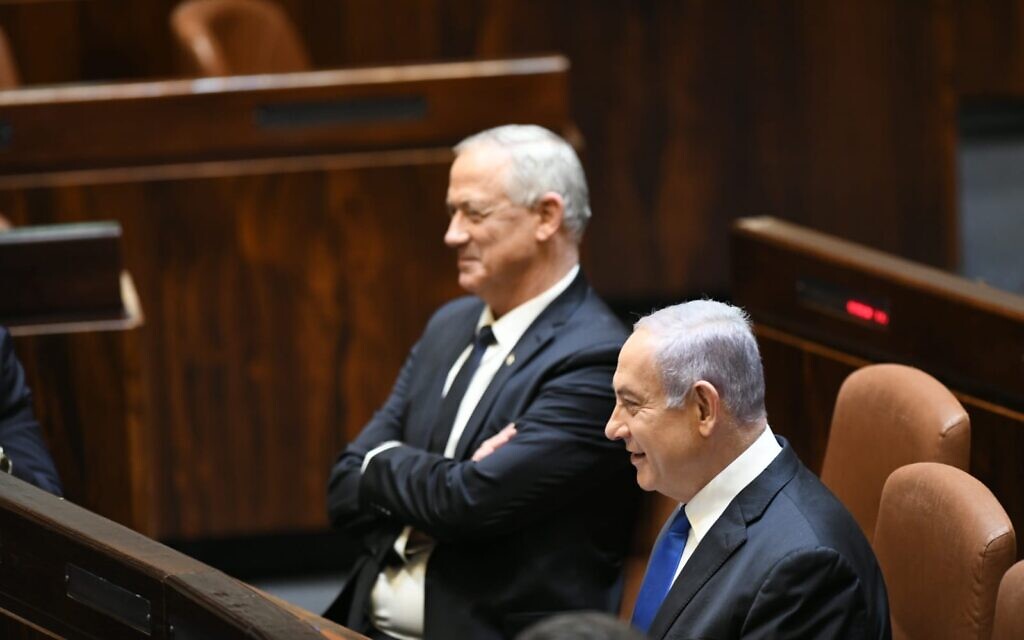Israel’s year-long political crisis, the worst in its statehood, officially ended on May 17 when Prime Minister Benjamin Netanyahu’s national unity government was sworn in. Netanyahu will retain the premiership for 18 months, until November 17, 2021, and then switch roles with Benny Gantz, the alternative prime minister and defence minister.
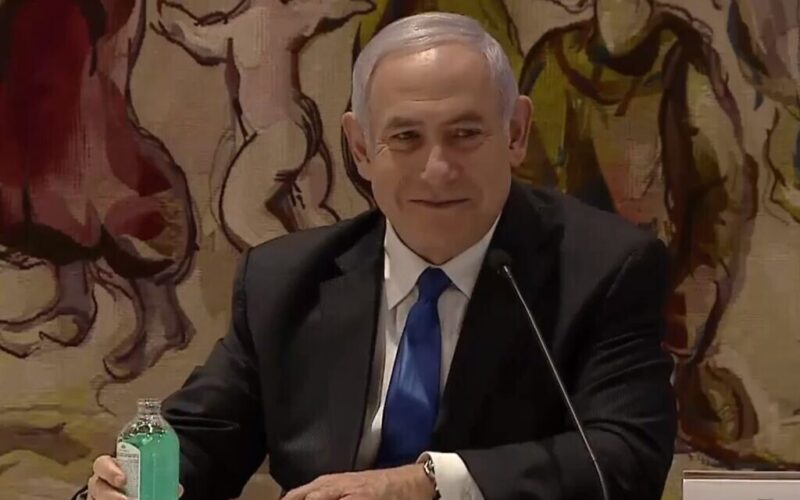
The formation of a power-sharing government spared Israel a fourth consecutive election after three inconclusive elections since last April, but it has not necessarily removed the prospect of still more turbulence and uncertainty in the near future.
Netanyahu, having been indicted by Attorney-General Avichai Mandelblit on charges of fraud, bribery and breach of trust in three separate cases, is scheduled to face a trial at the Jerusalem District Court on May 24.
The criminal indictment, the first against a sitting Israeli prime minister, could go either way. It may be an inconvenient and embarrassing distraction for Netanyahu, or it could be a prelude to his conviction and imprisonment.
Whatever the verdict, Israel, already weighed down by a disruptive coronavirus pandemic that has killed 272 Israelis and upended the country, cannot return to full normality until this matter is settled once and for all.
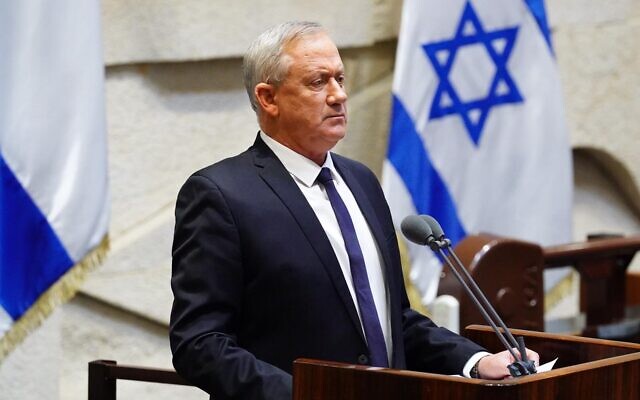
Israel was thrown into crisis mode after last April’s election, when Netanyahu’s right-wing Likud Party and Gantz’s centrist Blue and White Party finished in a virtual dead heat. Netanyahu, seeking a fourth straight term, was unable to form a majority government, forcing another election in September.
In the meantime, Netanyahu — Israel’s longest-serving leader — continued on as caretaker prime minister in a transitional government that could neither pass major legislation nor a new budget.
With September’s election resulting in another impasse, Gantz vigorously reiterated his election campaign promise not to serve in the same government as Netanyahu.
With neither Netanyahu nor Gantz able to move forward following the election in March, they launched negotiations with the objective of cobbling together a viable government.
Gantz, the former chief of staff of the Israeli armed forces, said he was forced into coalition talks by the coronavirus outbreak, which brought Israel to a near standstill in much of March and April.
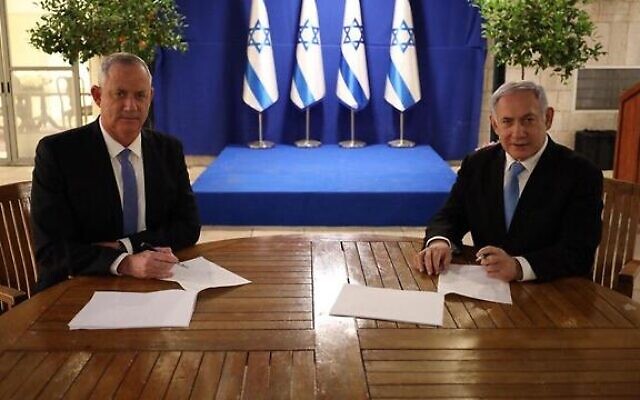
On April 20, he and Netanyahu decided to form a unity government with the participation of, among others, Netanyahu’s ultra-Orthodox allies.
Gantz justified his position on the grounds that this unprecedented public health disaster left him with no other responsible alternative. As he wrote in a Twitter post, “We prevented a fourth election.We will preserve democracy. We will fight the coronavirus and take care of all of Israel’s citizens.”
Gantz’s decision to serve with Netanyahu — a blatant reversal of a solemn pledge and a betrayal in the eyes of many of his supporters — enraged his Blue and White partners, Moshe Ya’alon and Yair Lapid, who had said they would never join forces with Netanyahu.
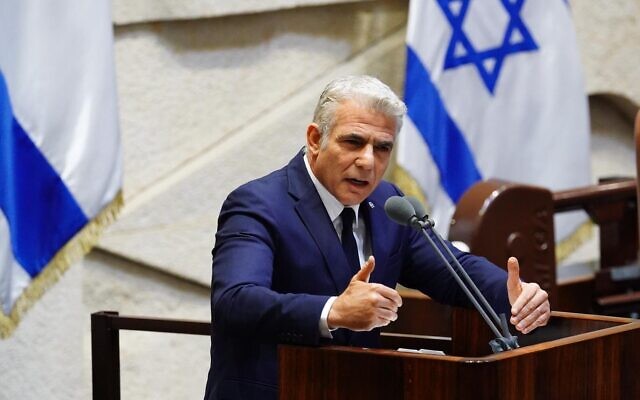
In short order, Ya’alon and Lapid severed their relationship with Gantz, a rupture that led to the collapse of their alliance. For Netanyahu, the breakup of Blue and White was a beneficial development, as it had been his most formidable adversary since his reelection 11 years ago.
On May 7, President Reuven Rivlin invited Netanyahu to form the next government after he presented Rivlin with the signatures of 72 Knesset members endorsing him as prime minister.
These turn of events represented a remarkable turnaround for Netanyahu, whom some commentators had pronounced politically dead and buried.
From a legal point of view, Netanyahu’s comeback was facilitated, ironically, by Mandelblit, as well as by the Supreme Court.
On April 30, Mandelblit ruled that his indictment did not disqualify Netanyahu from forming a new government. Mandelblit’s decision was a bitter blow to Israelis who argued that an indicted prime minister should resign or be compelled to step down.
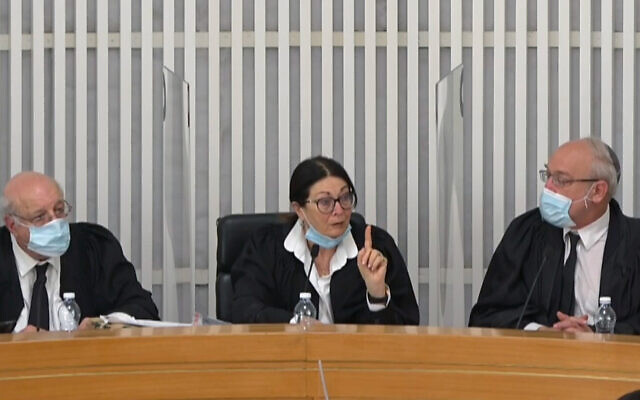
On May 6, the Supreme Court, in a ruling written by Chief Justice Esther Hayut, unanimously rejected petitions to bar Netanyahu from establishing his fourth straight government, thereby removing the last legal obstacle in his path.
Hayut’s decision was based on two principles. External intervention in the “democratic process” would be “a significant violation” of the principle that the people elect a prime minister, she wrote. No law prevents an indicted politician from becoming prime minister, and a statute allows a prime minister facing criminal charges to stay in office until he is convicted, she added.
Netanyahu, having surmounted these rigorous hurdles, was legally ready to resume governing.
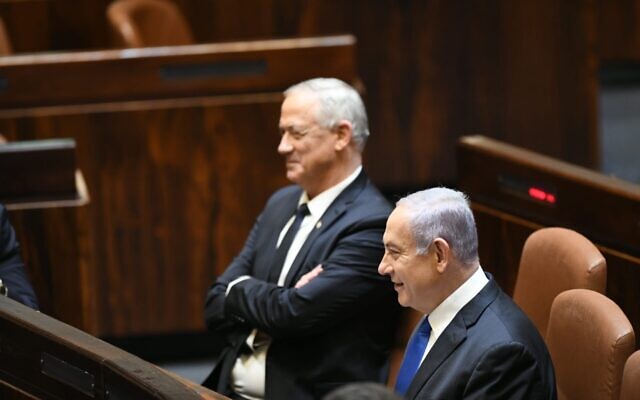
The new government, consisting of 34 cabinet ministers, includes 35 parliamentarians from the Likud, 16 from Blue and White, nine from the Shas Party, seven from the United Torah Judaism Party, two from the Labor Party, two from the Derech Eretz Party, one from the Jewish Home Party, and one from the Gesher Party.
Two fresh faces have joined the cabinet — Omer Yankelevich (Diaspora affairs), the first female ultra-Orthodox minister, and Pnina Tamano-Shata (Immigration and absorption), the first Ethiopia-born minister.

Naftali Bennett, the outgoing defence minister and a leader of the far right-wing national-religious Yamina Party, was excluded from the cabinet, he and Netanyahu having failed to reach an agreement over ministerial posts.
Lapid and Ya’alon, commanding 16 Knesset seats, will form the official opposition, along with Avigdor Liberman’s secular right-wing Yisrael Beytenu Party, Bennett’s Yamina Party, the left-wing Meretz Party, and the Arab Joint List, an amalgamation of four diverse Arab parties.
In a speech in the Knesset, Netanyahu promised to combat an expected second wave of the coronavirus, to deliver a budget that will guarantee economic stability and restore the one million jobs swallowed by the pandemic, and to thwart Iran in the region.
And, in keeping with his Zionist Revisionist philosophy, he vowed to annex the Jordan Valley and thus write “a glorious new chapter in the history of Zionism.”
It’s debatable how long this hybrid government will last, but Lapid expressed certainty it will have a very short life span. For now, though, calm and political stability have returned to Israel after a lengthy absence.

